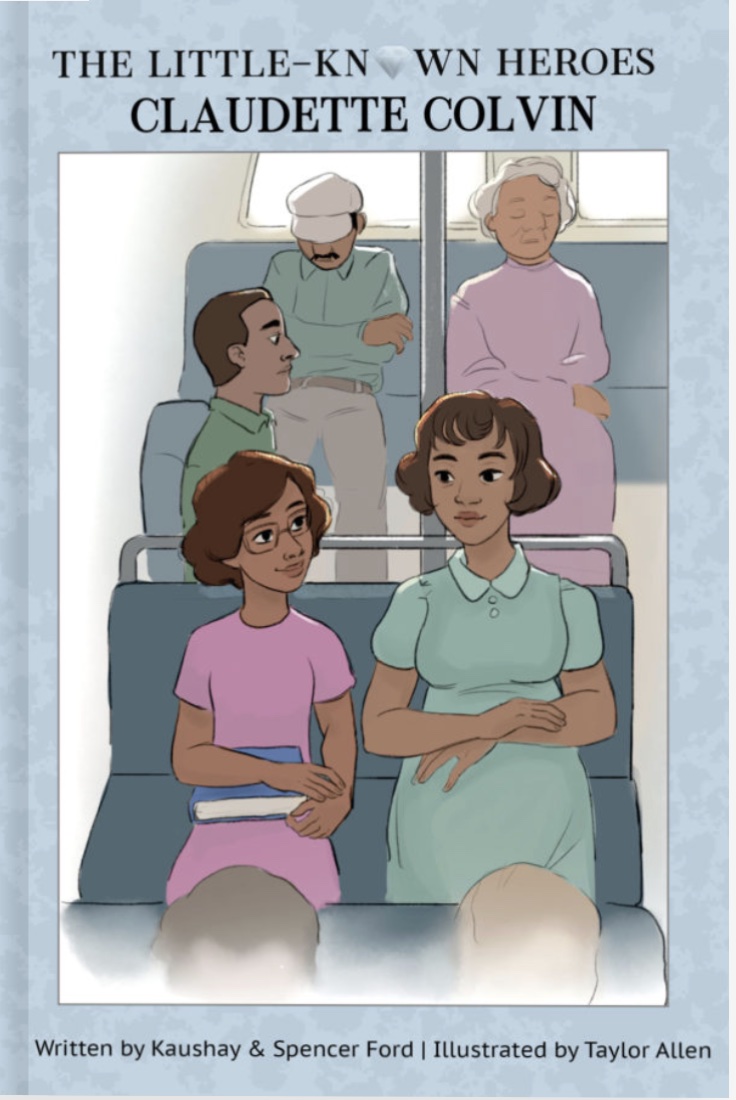Finding personal connections to historical figures can create wonderful educational opportunities. The Little-Known Heroes series of books is a great way to introduce children to heroes that are worthy of recognition, but rarely highlighted in textbooks. The authors wanted little readers to see real life heroes who may or may not look like them and to help parents start conversations about difficult topics with their children. The Little Known Heroes series is written by Kaushay and Spencer Ford and illustrated by Taylor Allen.
William “Dummy” Hoy
William “Dummy” Hoy was born in 1862 and lost his hearing at the age of three. At that time, deaf people were referred to as “dumb,” and some people also assumed that they were less intelligent. William Hoy was very smart, however, and proudly encouraged people to call him Dummy throughout his life because he knew he was intelligent and was proud to be deaf. William “Dummy” Hoy was successful at whatever he pursued, and he found great success as a baseball player. While some teams tried to pay him less because of his hearing loss, he insisted on equal pay. He set many MLB records at the time and played in all four Major Leagues. According to Little Heroes, “Dummy Hoy showed the world that just because someone is deaf, or has any disability, it doesn’t mean they can’t do amazing things.”
Frank Emi
Frank Emi was a Japanese American born in California in 1916. Following the attack on Pearl Harbor, he and his family were forced to sell their business and leave their life behind when they were sent to an internment camp in Wyoming. While in the camp, Frank and a few other imprisoned men refused to fight in the war until their rights as United States citizens were restored. As a result of this protest, he was sent to federal prison for resisting the draft. For a long time, many in the Japanese American community were upset by his refusal to fight, but today his actions are seen as an important protest. In 1976 President Ford issued a proclamation apologizing for the internment and promising that the mistake would never be repeated. In 2000 the Japanese American Citizens League issued a formal apology to Frank Emi and his fellow resisters. His story reminds us how important it is to make sure the United States never repeats this terrible act.
Claudette Colvin
Claudette Colvin’s life should have been “fun and easy;” she was smart and pretty and loved going to church and school. But Claudette was an African American living in Montgomery, Alabama during the 1950s. Claudette experienced segregation practices first hand, including separate drinking fountains for white people, and dark skinned people forced to sit in the back of the bus. Claudette joined the NAACP Youth Council, a group that wanted white and dark skinned people to work and go to school together. One day when she was 15 years old, Claudette was arrested for refusing to give up her seat on the bus to a white woman. Not long after Claudette’s protest, Rosa Parks did he same thing. Soon more and more non-violent protests began spreading throughout the country. The Civil Rights movement began to change the unfair laws, slowly but surely. Many Civil Rights leaders were inspired by Claudette, a young girl who sparked a national movement.
All three of these books can be purchased directly on thelittleknownheroes.com.
Jennifer S. (she/her) is a graduate of Fresno State University. She spent a number of years working for non-profits before becoming a full-time stay-at-home mother. She currently lives in Central California with her husband, two children, and two codependent cats.









